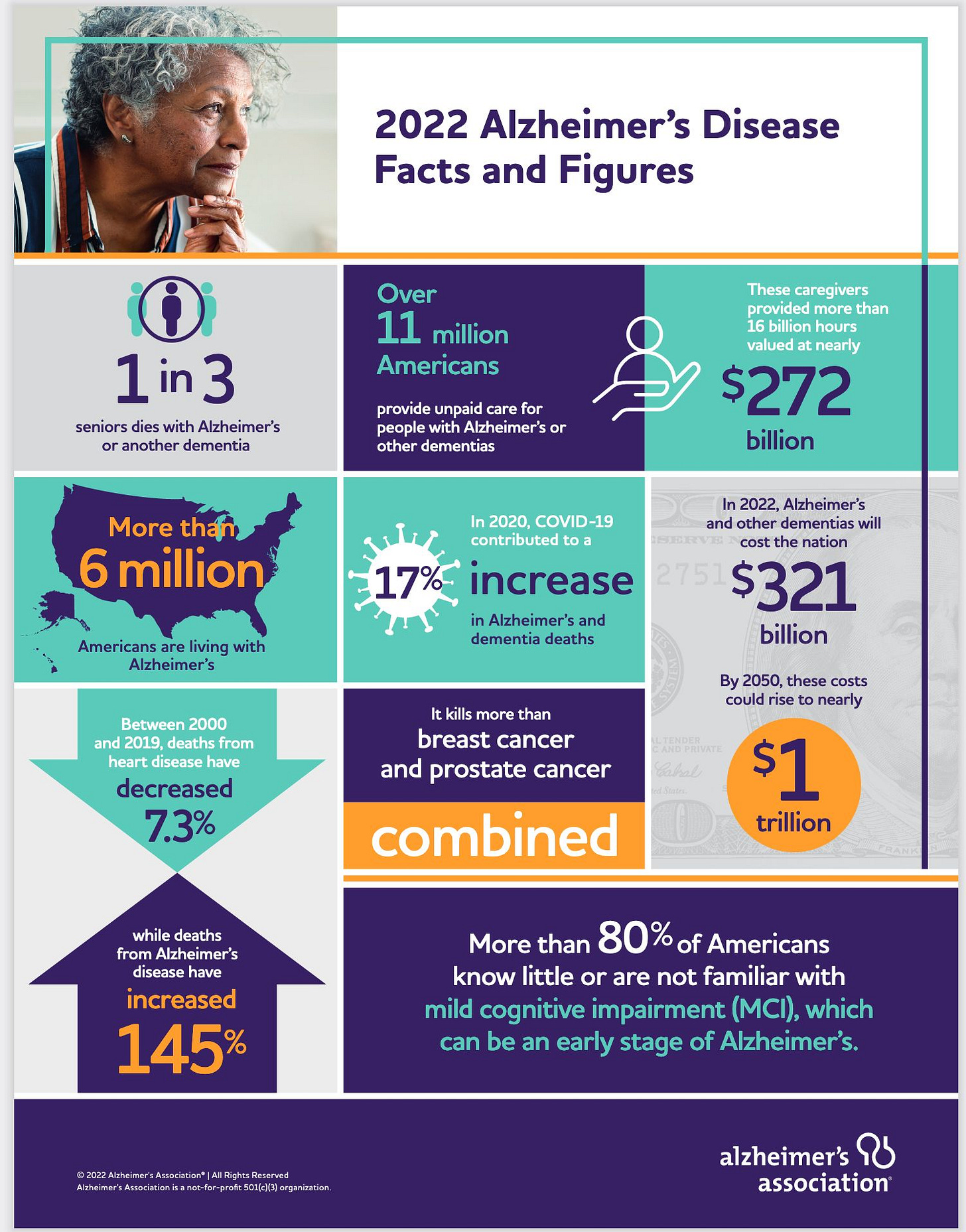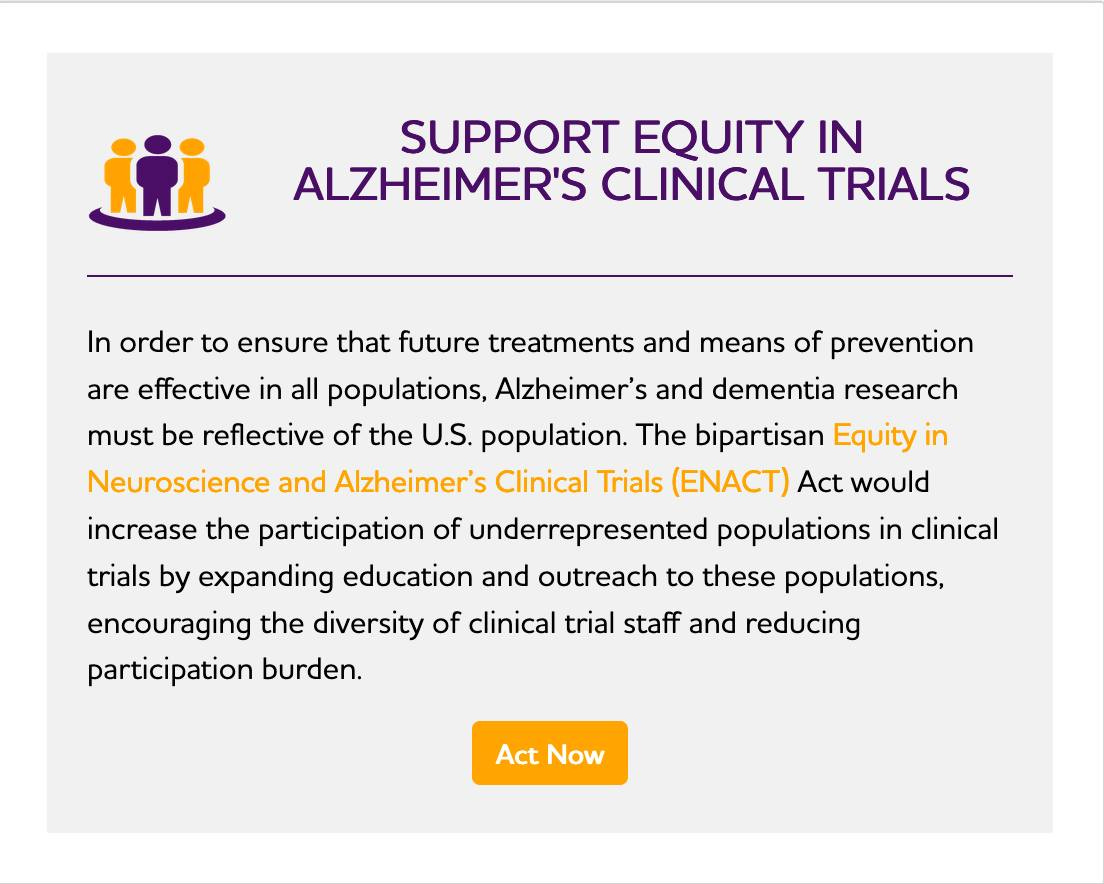3 things a UCLA clinical researcher says you should know about identifying Alzheimer's Disease
Video Interview: For this young researcher, battling and understanding Alzheimer's is more than work: it is personal

Hello KIRC Family!
In this update, we're talking Alzheimer's Disease.
Did you know more than six million Americans are impacted by Alzheimer’s Disease?
According to the Alzheimer's Association, one in three seniors dies with Alzheimer's Disease or another form of dementia.

Courtesy: Alzheimer's Association
And what might also surprise you is that Alzheimer’s Disease impacts different racial and ethnic groups at varying rates, yet researchers still do not know why.
Here are some of the stats:
Almost two-thirds of Americans with Alzheimer's Disease are women.
Older Black Americans are about twice as likely to have Alzheimer's or other dementias as older Whites.
Older Hispanics are about one and one-half times as likely to have Alzheimer's as older Whites. ~ source: Alzheimer's Association
There is currently proposed legislation calling for increased research to ensure equitable care and diagnosis for diverse populations - the ENACT Act.
You can learn more about the ENACT Act here and information on contacting your local legislators

Courtesy: Alzheimer's Impact Movement
Cultural challenges in Alzheimer's diagnosis and care
There may also be more at work than just medical science. Cultural differences in how families view aging and health may also play a role.
Keeping It REAL Caregiving recently talked with UCLA Research Coordinator in Public Policy and PhD student, Lauren Garcia about this topic.
I’m proud and honored to say Garcia is a fellow 2022 American Society on Aging, ASA Rise Fellow.
I asked Garcia to explain to our KIRC family the work she is doing at UCLA.
I’m an Alzheimer’s Disease clinical trial research coordinator and we run phase two and phase three research studies related to Alzheimer’s Disease and memory loss.
We do all kinds of studies ranging from patients who are not diagnosed with Alzheimer’s but who are predisposed to it, all the way to severe Alzheimer’s Disease studies. I also do several NIH (National Institute of Health) research studies, longitudinal studies, related to neuroimaging and memory loss.
Why is this research field important to Garcia?
It’s important to know in general about Alzheimer’s Disease. But I believe especially with certain cultures there is this stigma about Alzheimer’s; that it is about just old age; that it is not about memory loss.
But Alzheimer’s Disease is a real thing and there is memory loss! It exists. it is a real disease and we (different cultures) should be more exposed to that and change the narrative that it is not just about old age.
For Garcia, her work is not only about the research. What she learns will help others but it is also extremely personal.
One of the reasons I am doing this work is because of my grandparents. They had that similar experience where they thought the memory loss they were experiencing was due to old age. But really it was that they both had Alzheimer’s and unfortunately they were diagnosed really late.
If they knew earlier, we could have tried more public health interventions to try and see if we could slow down the disease.
So when they were diagnosed I only had about five years with them. If we knew sooner I could have had more time to spend with them.
But again, that’s because they were diagnosed late and there was so much stigma that surrounded Alzheimer’s Disease.
What are the key steps that someone should take if they are remotely concerned about their family members (or themselves) and the possibility of Alzheimer’s Disease?
As a research coordinator, I tell patients:
If you are experiencing any kind of memory loss go see your primary care doctor. Keep saying that you are experiencing a memory problem.
Sometimes it takes more than one visit and you have to say it multiple times for them to take action and take the steps and refer you to a neurologist.
It is also important that you be an advocate for yourself. Speak out and have your family members speak out for you as well.

Keeping It REAL Caregiving would like to thank UCLA PhD student Lauren Garcia for her time, expertise and passion for helping others.
Are you or someone you love is experiencing memory loss or other symptoms you may be concerned with, as Garcia explained, begin doing your homework early!
You can find much more information related to Alzheimer’s Disease and local resources here:
Until next time~
Julia
*Have a story idea, comment or suggestion for Keeping It REAL Caregiving? Be sure to jump into the discussion box - OR - you can hit REPLY to email me directly!

*Header Image: Courtesy Adobe Stock/Canva



